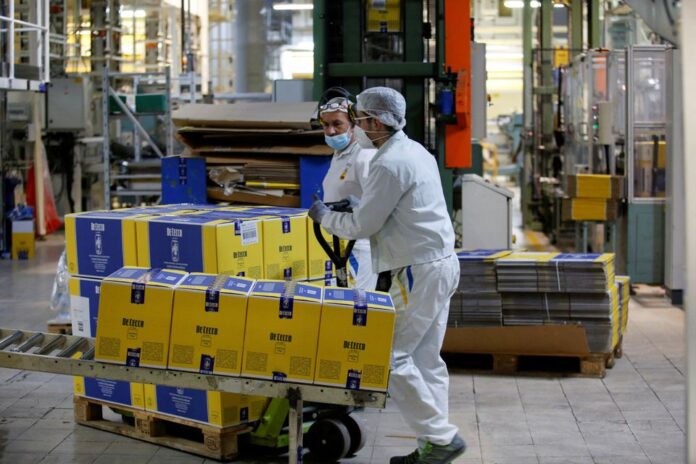Business activity across the euro zone contracted for a second straight month in August as the cost of living crisis forced consumers to curtail spending while supply constraints continued to hurt manufacturers, a survey showed on Tuesday, according to Reuters.
The global economy is increasingly at risk from sliding into recession as Russia’s invasion of Ukraine and China’s strict COVID-19 lockdowns have further damaged supply lines not yet recovered from the pandemic.
Meanwhile, consumers are facing the highest inflation in a generation which is forcing central banks to tighten monetary policy aggressively just as the economies need support.
S&P Global’s flash euro zone Composite Purchasing Managers’ Index (PMI), seen as a good guide to overall economic health, fell to 49.2 in August from 49.9 in July, just above the median forecast in a Reuters poll for a bigger drop to 49.0.
A reading below 50 indicates a contraction and August’s preliminary estimate was the lowest since February 2021.
A downturn in Germany, Europe’s largest economy, deepened in August, a separate PMI survey showed, as companies saw demand dampened by a combination of high inflation, rising interest rates and economic uncertainty.
France’s economy contracted for the first time in a year and a half, its PMI showed, as weaker demand and inflationary pressures also hit businesses there.
In Britain, outside the European Union, private sector growth slowed to a crawl as factory output fell and the larger services sector eked out only a modest expansion, indicating a recession was coming.
Suggesting there was little hope of an imminent turnaround in the euro zone, overall demand in the bloc fell for a second month. The new business index came in at 47.7, just ahead of July’s 47.6.
A PMI covering the bloc’s dominant services industry fell to 50.2 from 51.2, barely above breakeven and below the 50.5 predicted in the Reuters poll.
Although services firms increased their charges at a slower rate this month the output prices index remained well above the long-term average. The input prices index also dipped.
Manufacturing activity in the bloc fell again this month. The factory PMI dipped to 49.7 from 49.8, its lowest since June 2020, while an index measuring output that feeds into the composite PMI was 46.5 compared to July’s 46.3.


